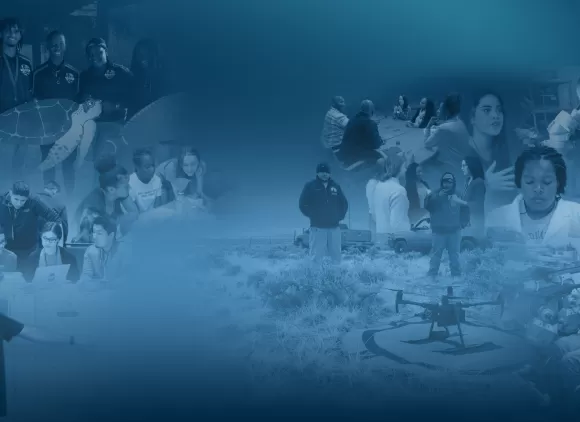Featured funding
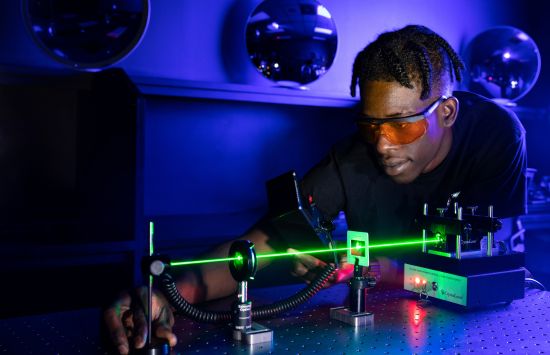
HBCU-UP
The Historically Black Colleges and Universities - Undergraduate Program (HBCU-UP) provides awards to strengthen STEM undergraduate education and research at Historically Black Colleges and Universities (HBCUs). HBCU-UP is actively encouraging new proposals and supplemental funding requests.

NSF HBCU-EiR
The Historically Black Colleges and Universities - Excellence in Research (HBCU-EiR) supports research at public and private HBCUs to strengthen research capacity and promote engagement with NSF. HBCU-EiR invites planning proposals from HBCUs to support activities that will lead to a future HBCU-EiR submission.
Additional funding opportunities
- Centers of Research Excellence in Science and Technology (CREST Centers): Provides support to enhance the research capabilities of Minority-serving institutions (MSIs) through the establishment of centers that effectively integrate education and research.
- Centers of Research Excellence in Science and Technology HBCU Research Infrastructure for Science and Engineering (CREST-RISE): Supports the expansion of research and education capabilities of minority-serving institutions to strengthen their science and engineering graduate programs and the successful production of research doctoral students.
- Louis Stokes Alliances for Minority Participation (LSAMP): Supports university alliances and post-baccalaureate fellowship programs focused on increasing the number of STEM bachelor's and graduate degrees awarded to populations historically underrepresented in STEM fields.
- Racial Equity in STEM Education (EHR Racial Equity): Supports projects focused on advancing racial equity in STEM education and workforce development that are led or co-developed by individuals and communities most impacted by the inequities caused by systemic racism.
- NSF Eddie Bernice Johnson Inclusion across the Nation of Communities of Learners of Underrepresented Discoverers in Engineering and Science Initiative (NSF INCLUDES): Increases diversity and inclusion in STEM by supporting innovative approaches to broadening participation, including efforts to engage and support Black/African American communities.
- ADVANCE: Organizational Change for Gender Equity in STEM Academic Professions: Increases the representation and advancement of women and underrepresented minorities in STEM academic careers. It also includes a focus on intersectionality, including race and gender.

Duke Professors to Lead Nationwide Effort to Diversify Participation in Computing
NSF funded a $10 million grant to increase computing entry, retention and degree completion rates of students from historically underrepresented groups
Developing STEM Talent
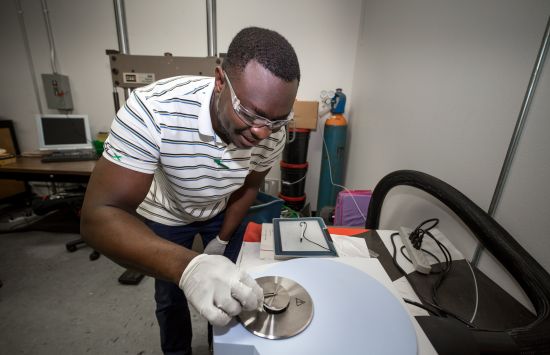
NSF establishes new center to study successful undergraduate STEM education practices at Historically Black Colleges and Universities
NSF awarded $9 million to establish the center, which will study and model the successful practices of HBCUs, with the aim of applying these practices broadly in higher education.
Developing and supporting STEM talent is crucial for maintaining the country's global competitiveness and creating a diverse and skilled workforce for the future. To achieve this goal, the NSF invests in a variety of programs and initiatives that focus on identifying and nurturing talent in the STEM fields. These programs include:
- Graduate Research Fellowship Program (GRFP): Broadens participation of the full spectrum of diverse talents in STEM. The five-year fellowship provides three years of financial support inclusive of an annual stipend of $37,000.
- Research Experiences for Undergraduates (REU): Supports active research participation by undergraduate students in any of the areas of research funded by the National Science Foundation.
- NSF Scholarships in Science, Technology, Engineering, and Mathematics (S-STEM): Provides scholarships to undergraduate students from low-income backgrounds to pursue degrees in STEM fields.
- Summer Scholars Internship Program (SSIP): Develops the potential of undergraduate and graduate students from underrepresented groups interested in gaining professional experience working in science administration.
Prestigious awards
NSF recognizes the importance of diversity in the scientific community and offers several honorary awards to honor diverse individuals and organizations. These include:
- Faculty Early Career Development Program (CAREER): Supports early-career faculty who have the potential to serve as academic role models in research and education and contribute to the mission of their department or organization.
- Presidential Awards for Excellence in Science, Mathematics and Engineering Mentoring (PAESMEM): Recognizes individuals and organizations for their efforts in mentoring students from underrepresented groups in STEM.
- Presidential Early Career Awards for Scientists and Engineers (PECASE): Recognizes a diverse pool of scientists and engineers who, while early in their research careers, show exceptional potential for leadership at the frontiers of scientific knowledge during the twenty-first century.
- National Medal of Science: Recognizes the importance of diversity and inclusion in the scientific community and celebrates those who have made significant efforts to promote and advance diversity and representation in STEM fields.
- Alan T. Waterman Award: Recognizes outstanding young scientists and engineers and encourages nominations of individuals from underrepresented groups. This includes women, people of color, and individuals with disabilities.
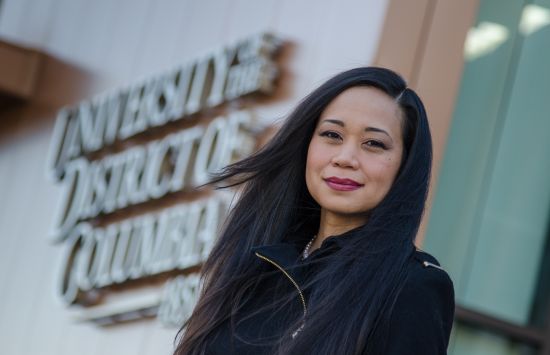
First principal investigator faculty member of an HBCU receives the NSF Alan T. Waterman Award
Dr. Lara Thompson, received $1 million over five years for research on rehabilitation robotics and devices for veterans and amputees.
Special initiatives
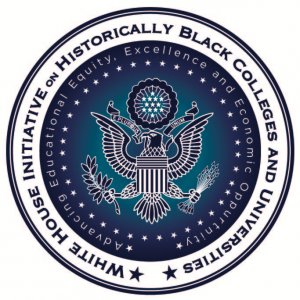
Credit: The White House
- White House Initiative on Advancing Educational Equity, Excellence, and Economic Opportunity through Historically Black Colleges and Universities: The Initiative is dedicated to a Government-wide policy making effort to eliminate barriers HBCUs face in providing the highest-quality education to a growing number of students. The Initiative works closely with the Executive Office of the President on key Administration priorities related to advancing educational equity, excellence, and economic opportunity through HBCUs, in partnership with HBCU leaders, representatives, students, and alumni.
- Advancing Research Capacity at HBCUs through Exploration and Innovation: This solicitation invites participation in an Ideas Lab, which is an intensive, facilitated workshop that brings together multiple diverse perspectives to find innovative solutions to a grand challenge. This Ideas Lab will focus on exploration of innovative approaches for addressing the research capacity needs of the Nation’s Historically Black Colleges and Universities (HBCUs) and development of collaborative networks among HBCUs that enable research in science, technology, engineering, and mathematics (STEM).
Contact information
For further information concerning NSF's Broadening Participation programs, please contact:
BP Contacts
Phone: 703-292-8040
Email: broadpart@nsf.gov

